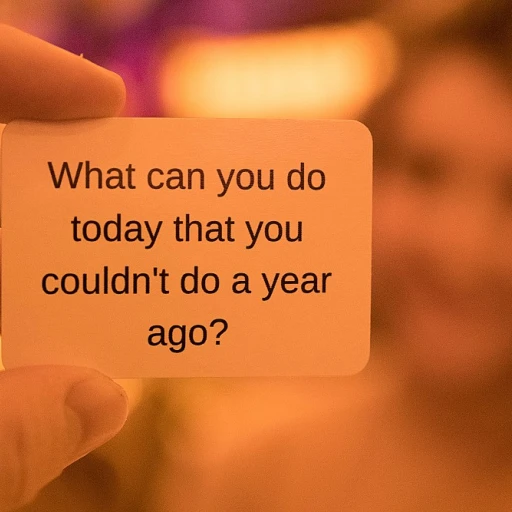
Understanding the role of a special education teacher
What Makes the Special Education Teacher Role Unique?
Special education teachers play a vital role in supporting students with disabilities and diverse learning needs. Unlike general education teachers, they adapt teaching methods and classroom strategies to help students achieve their full potential. The focus is not only on academic progress but also on social skills, advocacy, and individualized education. Understanding this multifaceted role is essential for anyone preparing for a teacher interview in special education.
- Individualized Education: Special education teachers develop and implement Individualized Education Programs (IEPs) tailored to each student’s strengths and needs. This requires collaboration with other teachers, parents, and support staff to ensure student progress.
- Advocacy Skills: Advocacy is central to the role. Teachers must help students access resources, support students in the classroom, and communicate effectively with families and school teams.
- Positive, Supportive Learning Environment: Creating a classroom where all students feel valued and supported is key. This includes managing behaviors, fostering social skills, and encouraging goal setting.
- Knowledge of Education Laws: Understanding laws and regulations related to special education is critical. Teachers must stay updated on policies to ensure compliance and protect students’ rights.
- Professional Development: Ongoing learning is important. Special education teachers often participate in training to improve teaching methods and better support students with disabilities.
When preparing for interview questions, it’s important to reflect on your experience supporting students, your approach to individualized education, and your commitment to creating a positive classroom environment. For more insights on how to succeed in HR job interviews, check out this guide to navigating HR job interviews.
Common special education teacher interview questions
Essential Interview Questions and How to Approach Them
When preparing for a special education teacher interview, it’s important to anticipate the types of questions you might face. These questions are designed to assess your understanding of special education, your teaching methods, and your ability to support students with disabilities in a positive supportive learning environment. Common Interview Questions- How do you adapt your teaching methods to meet the diverse needs of students with disabilities?
- Can you describe your experience with individualized education programs (IEPs) and how you help students achieve their goals?
- What strategies do you use to collaborate with general education teachers, parents, and support staff?
- How do you measure student progress and adjust your instruction accordingly?
- What steps do you take to create an inclusive classroom that fosters social skills and learning for all students?
- How do you handle challenging behaviors or conflicts in the classroom?
- What is your approach to professional development and staying current with education laws and best practices?
- How do you advocate for your students and ensure they receive the support they need?
- Use specific examples from your teaching experience to demonstrate your skills and knowledge.
- Highlight your ability to fill multiple roles, from direct instruction to advocacy and collaboration.
- Show your commitment to individualized education and goal setting for each student.
- Emphasize your understanding of the importance of a positive supportive learning environment.
- Discuss how you work with parents and other teachers to support students special needs.
Behavioral questions and how to approach them
Responding to Behavioral Interview Questions with Confidence
Behavioral interview questions are a key part of the teacher interview process, especially for special education teachers. These questions help interviewers understand how you have handled real situations in the classroom and how your experience can support students with disabilities. The goal is to assess your teaching methods, classroom management, and advocacy skills in action. What to Expect- Questions about how you have supported students with diverse learning needs
- Scenarios involving conflict resolution between students or with parents
- Examples of adapting teaching strategies for individualized education
- Situations where you collaborated with general education teachers or support staff
Use the STAR method (Situation, Task, Action, Result) to organize your responses. This approach helps you clearly describe your experience and the positive supportive learning environment you create. For example, if asked about a time you helped a student with social skills, outline the situation, your goal setting, the steps you took, and the outcome for student progress.
Sample Behavioral Questions| Interview Question | What Interviewers Look For |
|---|---|
| Describe a time you modified a lesson to support students special needs. | Ability to adapt teaching, knowledge of individualized education programs (IEPs), and commitment to student learning. |
| Tell us about a conflict you managed between students in your classroom. | Classroom management skills, conflict resolution strategies, and maintaining a positive supportive environment. |
| How have you worked with parents to help students succeed? | Communication skills, collaboration with families, and advocacy for students disabilities. |
When preparing for these interview questions, reflect on your teaching experience and professional development. Think about how you have supported student progress, worked with other education teachers, and stayed informed about education laws. Your answers should demonstrate your dedication to helping every student reach their full potential.
For more insights on how recruiters evaluate behavioral responses in HR job interviews, check out this guide on how software sales recruiters approach HR job interviews.
Demonstrating your knowledge of individualized education programs (IEPs)
Highlighting Your Understanding of IEPs
When you are in a special education teacher interview, expect questions about your experience with individualized education programs (IEPs). Interviewers want to know how you support students with disabilities and collaborate with other teachers, parents, and school staff to help students succeed. IEPs are central to special education. They outline the learning goals, accommodations, and services each student needs. To answer interview questions about IEPs effectively, focus on your practical experience and understanding of the process.- Describe your role in developing IEPs: Explain how you work with general education teachers, parents, and specialists to create meaningful goals and select appropriate teaching methods for students special needs.
- Share examples of monitoring student progress: Discuss how you track learning outcomes and adjust instruction to support students in reaching their IEP goals. Mention any tools or strategies you use to measure progress.
- Talk about advocacy skills: Highlight how you advocate for students during IEP meetings, ensuring their needs are met and their voices are heard. This shows your commitment to positive supportive learning environments.
- Discuss collaboration and communication: Emphasize your ability to communicate with parents and other education professionals. Effective teamwork is key to successful individualized education.
- Address legal and ethical considerations: Show your knowledge of education laws and your responsibility to maintain confidentiality and compliance throughout the IEP process.
Addressing classroom management and conflict resolution
Effective Strategies for Managing Diverse Classrooms
Special education teachers are often asked in interviews about their approach to classroom management and conflict resolution. These questions help interviewers understand how you support students with disabilities, foster a positive supportive learning environment, and collaborate with general education teachers and parents. When answering, focus on your experience creating structured, inclusive classrooms that help students with different learning needs. Highlight your skills in adapting teaching methods and individualized education plans (IEPs) to support students special and promote student progress.- Establish Clear Expectations: Explain how you set classroom rules and routines that are accessible for all students, including those with social skills challenges or behavioral needs.
- Proactive Conflict Resolution: Share examples of how you de-escalate conflicts and use positive behavior interventions. Mention any training in education laws or advocacy skills that guide your approach.
- Collaboration with Support Staff: Discuss how you work with paraprofessionals, therapists, and other education teachers to fill gaps in support and ensure consistency for each student.
- Family and Parent Involvement: Describe how you communicate with parents to address concerns and set shared goals for student learning and behavior.
- Professional Development: Reference your commitment to ongoing learning, such as attending workshops on new teaching methods or classroom management strategies.
Showcasing your passion and commitment to special education
Communicating Dedication to Special Education
During a teacher interview for a special education position, it’s essential to show your genuine passion for supporting students with disabilities. Interviewers look for candidates who not only have the necessary teaching skills and knowledge of education laws but also demonstrate a deep commitment to helping every student succeed. Here’s how you can effectively communicate your dedication:
- Share Real Experiences: When answering interview questions, refer to specific moments where you made a difference in the lives of students with special needs. For example, describe how you adapted teaching methods to support students’ learning or how you collaborated with parents and general education teachers to create a positive supportive classroom environment.
- Highlight Advocacy Skills: Explain how you advocate for students’ rights and individualized education. Mention your experience working with individualized education programs (IEPs) and how you ensure that each student’s unique needs are met.
- Discuss Professional Development: Show your commitment to continuous learning by mentioning any professional development activities, workshops, or certifications you have pursued to enhance your teaching and support skills in special education.
- Emphasize Goal Setting and Student Progress: Talk about how you set realistic goals for your students and track their progress. Share examples of how you help students develop social skills and achieve milestones, even when facing challenges in the classroom.
- Demonstrate a Positive Attitude: Interviewers appreciate candidates who maintain a positive outlook and create a supportive learning environment. Describe how you foster respect, inclusion, and encouragement among students, teachers, and parents.
Remember, your answers should reflect both your expertise and your heartfelt commitment to helping students special and supporting their growth. By sharing authentic stories and practical examples, you can fill your interview with evidence of your dedication to special education teaching.













